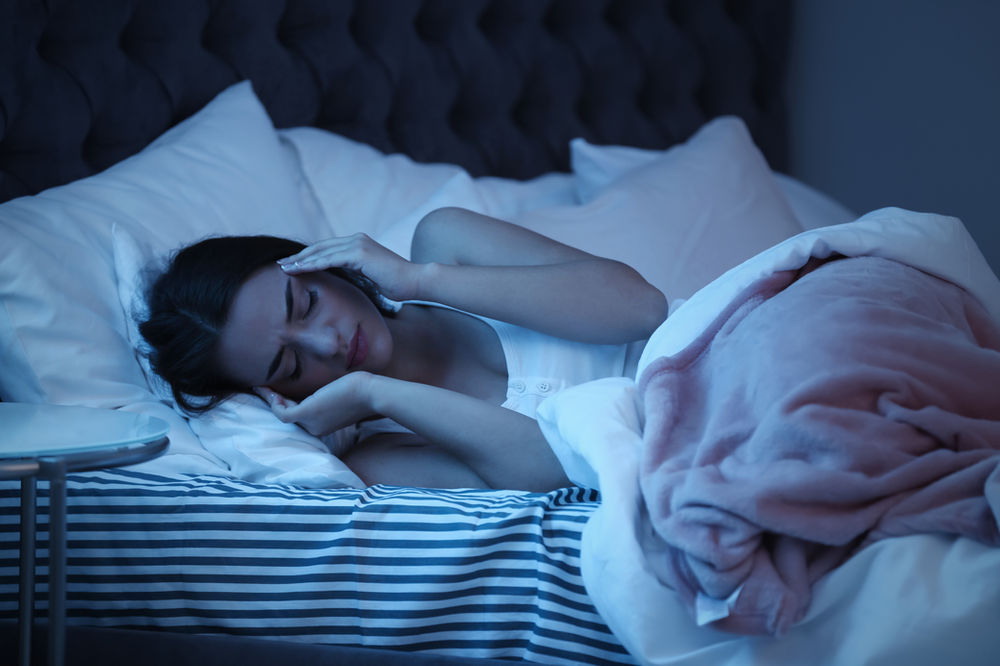Anxiety is one of sleep’s biggest enemies. It’s a vicious cycle; your anxiety makes it hard to sleep, which makes you more anxious, which means you can’t sleep, etc and etc. In this era of COVID-19, when the virus and all its peripheral problems are at the forefront of our minds, getting good sleep can be harder than ever.Image Credit: ShutterstockWhen this anxiety-related sleeplessness hits us, the first thing we tend to do is to go straight for the psychological strategies; a mindful, meditative purge of the virus from the recesses of our minds. However, when it comes to sleep, mental tricks aren’t always the most helpful. Our sleep health is so integrated into our daily lives, that more often it’s the physical things we do (or don’t do) that have the most impact on our soundly sleeping selves. It’s for this reason that we’ve collected 5 tips from our lead physician and medical director, Dr. Andrew Bradbeer, to help you sleep as well as you can during the chaos that is the coronavirus pandemic.1. Have a bedtime routine.Get up at the same time every morning, and go to bed at the same time every night. Having a set structure like this will not only give you an anchoring routine during the uncertainty of self-isolation, but will also help your body get into “sleep mode” in the evenings, and help you wake up feeling refreshed.2. Don’t use screens at nightThe blue light from TVs, laptops and especially phones, makes it really difficult to get to sleep. It suppresses the chemical called melatonin, which is a hormone your body generates when it gets dark to tell you it’s time to sleep. Spend the hour before bed winding down by reading, drawing, or whatever else you can do without a screen. It’ll really help.3. Get some natural light in the morningIf you can, step outside for a few minutes in the morning, drink a coffee on the porch, or better yet, go for a walk. In the same way that using a phone at night decreases melatonin in a bad way, getting natural light in the morning decreases melatonin in a good way; stopping you from feeling tired and helping refresh you for the day ahead.4. Get regular exerciseGetting active and moving every day, even just for a walk, is key to our wellbeing. Making sure you’re as healthy as you can be will mean that your anxiety and stress are lowered and you’ll be able to sleep better. If you’re not in the habit of exercising, start.5. Eat healthily, and at set meal timesIsolation is not an excuse to eat junk food, nor to just graze whenever you’re hungry. Having a healthy diet, like exercise, improves your general wellbeing and mental health, meaning you get better sleep. Also, the structure of set meal times gives your body a rhythm for the day, clueing you in for when it’s time to sleep.
Hopefully these tips can provide you with better rest while these restrictions are in place, and beyond.We understand that this is a difficult time for a great many people. If your mental health is really suffering, please reach out and get some help. Beyond Blue has a dedicated support service for this exact situation, so find out more by clicking here, or just calling them on 1800 512 348Sleep Well – Live Well



